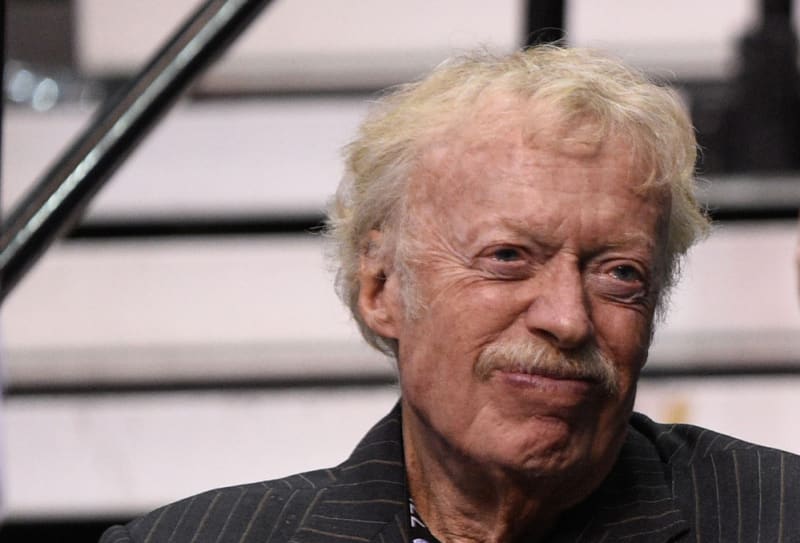Today, a single brand that sponsors several football, tennis and basketball players, Nike has grown its image as a unique line of shoes that are tailor-built just for the athletes and champions.
Nike employs more than 44,000 people and its brand alone is valued at nearly $10 billion. Nike’s success has been the result of the constant innovation and timely investments that have resulted in Nike making profits worth hundreds of million dollars every year.

The footwear brand was started over 50 years ago by Bill Bowerman and his protégé Phil Knight. Bowerman coached track at the University of Oregon and Knight was one of his student runners.
Bowerman wanted a lighter shoe to help out the individual and team competitors. Knight wanted a job in sports he could run from his car. He saw a future and wanted to dominate the sportswear industry by innovative mass marketing and cheap help. And sometimes he even tried to create good products.
While in graduate school at Stanford, Knight scribbled papers and devised about how he and his faster lighter shoes could surpass Adidas and its all-encompassing clutch on the sports world. The answer appeared to him on a patronage to Asia.
He travelled to Japan and found a brand of shoes he thought might kick off a new sports trend. They were called OnitsukaTigers who made the sort of a knockoff Adidas. Seems the cheap Eastern labour would really pay off for Knight. So he bought a bunch under the made-up name Blue Ribbon Sports, saying his company wanted to be their U.S. distributor.

Knight brought them back to the States in 1963 and hocked them out of the trunk of his car. Suddenly Blue Ribbon Sports was actually a real business. He sold them all and ordered more with Bowerman and their new salesman, Jeff Johnson.
The sneakers embellished a smash with the sportsmanlike crowd and the name was changed to Nike.
Keeping on the goddess theme, the new gods of sneakers decided they wanted a logo that would look good on a shoe and would represent Nike’s wing.
They thought long and hard about it and made the serious investment of $35 to a woman named Caroline Davidson. She designed the swoosh and was forever scarred when Nike topped over $270 million with her design by the late 1970s and her 35 bucks were long gone.
With the 80s came Jane Fonda, the 20-minute workout and the heyday of Bruce Jenner, short shorts and Richard Simmons. Nike was just in time to run along with the fitness craze sweeping the country. Knight decided that the best way to push the brand was to have it worn, used, and lauded by athletes.
At the time it was risky, now it’s the surest bet in sports. It definitely didn’t hurt that at the time Bowerman was an Olympic coach whose team members were more than happy to try the aerodynamic kicks. With medals and records came publicity for the sneakers and Nike. Starting with Steve Prefontaine and John McEnroe, Nike was used by successful and high profile athletes.
In 1988 Nike revolutionized the forte of branding and sportswear commercials. Just-do-it was trademarked and became one of the most iconic sayings in the world advertising history. Just-do-it is now starred in the Smithsonian and was named one of the top 5 brand-precepts of the 20th century.
In the 1990s everyone wanted to be like Mike, and the decade-long partnership between Michael Jordan and Nike made every kid with a pair of black high tops think he could make it to the NBA. As long as they didn’t follow Jordan to Major League Baseball, everyone was happy, especially the Nike founders who made well over $20 billion.
Nike has long surpassed the Adidas sales that helped motivate Phil Knight’s efforts in the 1960s. Nike bought Converse and the rights to the legendary Chuck Taylor sneakers. Nike combined high-end luxury shoes with their waffle air bottoms in the unexpected acquisition of Cole Haan. And to complete the sports domination, Nike bought surfing and skating brand Hurley and British soccer apparel brand Umbro.
There have been lows for the company in the public eye. But they’ve followed the theme that any publicity is good publicity, and none of the scandals displaced Nike as the world’s most popular brand of sneakers. There were allegations of racism by Jesse Jackson, killings of young teens for their sportswear in the early 90s, and the very obvious exploitation of cheap Asian labour that helped Blue Ribbon and Nike be born. Nothing moved Nike out of the top spot and Phil Knight even rose in the midst of all of the accusations and was labelled one of the most influential men in sports– a first for an individual not directly tied to a sport as an athlete, coach or owner.
And so, the CEO himself once said-
Play by the rules, but be ferocious










